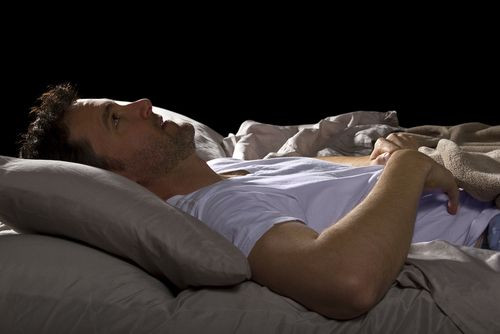Suicide Risk Increases For Adults Who Have Poor Sleep Quality

Sleep has claimed another health risk, as it now increases the odds of becoming suicidal in older adults. Researchers from the Stanford University School of Medicine in California published a 10-year study, which found a relationship between suicide in older adults and poor sleep quality, regardless of depression.
We live in a society that deprives us from sleep. Over 100 years ago, when Thomas Edison invented the light bulb and had his first public demonstration in 1879, it opened a world of opportunity and access to the 12 hours of darkness the world forbade from us. Before Edison had invented the light bulb, sleep records indicate people would sleep much longer, were more physically active, and maintained their bodies with a more nutritiously balanced diet.We’ve invaded the night armed with nightly television programs, video games, cell phone apps, and social media addictions.
During a 10-year observation period, researchers studied 420 individuals, and, unfortunately throughout the study lost 20 of their patient participants due to suicide. Individuals who reported they had a poor quality of sleep, regardless of depression, were 1.4 times more likely to commit suicide than those who had a healthy sleep regimen. Those who reported poor sleep quality either had trouble falling asleep or had trouble falling back asleep after they woke up.
"We suggest that poor subjective sleep quality may therefore represent a useful screening tool and a novel therapeutic target for suicide prevention in late life," the authors wrote. If a patient reports to their family doctor that they’re having a hard time falling asleep or they can’t fall back asleep, it could serve as a sign for suicide in older adults. The study revealed elderly, white males 85 years of age or older were the demographic group with the highest rates of suicide compared to the general population.
As people grow older with age, both the rate of sleep complaints reported and frequency of suicides committed rises, with tremendous threat to older adults. Sleep disruption is reported in 57 percent of older adults due to health problems, stresses, and a variety of other causes that can lead to the frailty in life. Between 50 and 70 million Americans are affected by chronic sleep disorders, according to the National Sleep Foundation. Chronic sleep deprivation results in daytime sleepiness, slower reflexes, poor concentration, and increased risk of car accidents. Long-term problems, which pose more severe health consequences, include diabetes, high blood pressure, heart disease, stroke, weight gain, and now an increased risk of suicide.
Suicide rates have, for the most part, remained fairly consistent. Between the 20-year span of 1990 to 2010, suicide rates in the U.S. dropped and then rose again, according to the American Foundation for Suicide Prevention. However, it’s still the 10th leading cause of death for Americans. It accounts for one million deaths worldwide, and in the U.S. alone, another person takes his own life every 13.3 minutes, including the recent and tragic death of Academy-award winning Robin Williams, who was found dead in his California home on Monday. As a 63-year-old comedic icon and American legend, it came as a surprise for many, but not for those who were aware of his long battle with depression and addiction.
Understanding suicide and the risk factors involved are vital to keeping yourself and loved ones happy and healthy. Some of the most frequently reported risk factors include depression or bipolar disorder, alcohol or substance abuse, schizophrenia, aggression, impulsive behaviors, anxiety disorders, and now poor sleep quality may be added to the list after researchers investigate their findings further.
Source: Bernert RA, Turvey CL, Conwell Y, and Joiner TE. Association of Poor Subjective Sleep Quality With Risk for Death by Suicide During a 10-year Period: A Longitudinal, Population-Based Study of Late Life. JAMA Psychiatry. 2014.



























